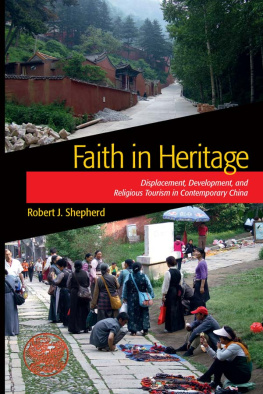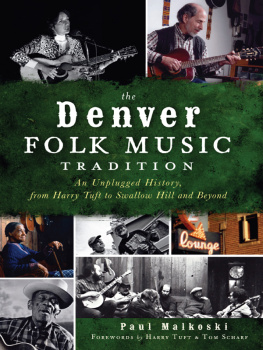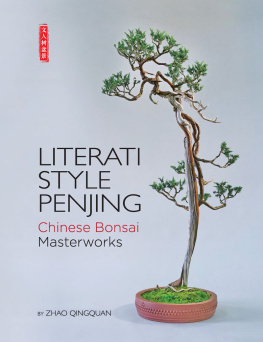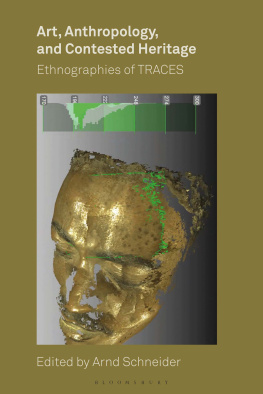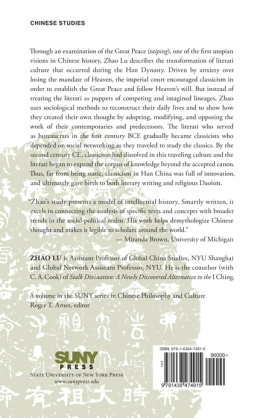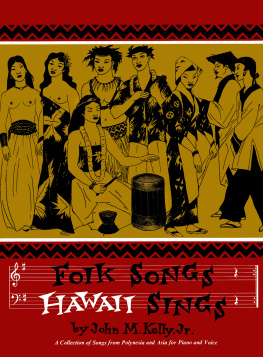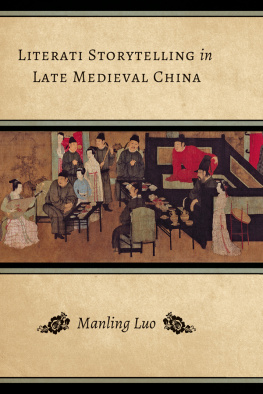This book is a publication of
Indiana University Press
Office of Scholarly Publishing
Herman B Wells Library 350
1320 East 10th Street
Bloomington, Indiana 47405 USA
iupress.indiana.edu
2020 by Ziying You
All rights reserved
No part of this book may be reproduced or utilized in any form or by any means, electronic or mechanical, including photocopying and recording, or by any information storage and retrieval system, without permission in writing from the publisher. The paper used in this publication meets the minimum requirements of the American National Standard for Information SciencesPermanence of Paper for Printed Library Materials, ANSI Z39.48-1992.
Manufactured in the United States of America
Cataloging information is available from the Library of Congress.
ISBN 978-0-253-04635-2 (hardback)
ISBN 978-0-253-04636-9 (paperback)
ISBN 978-0-253-04639-0 (web PDF)
1 2 3 4 5 25 24 23 22 21 20
I N HONGTONG, SHANXI, CHINA, FIRST AND FOREMOST I would like to thank the participants of local annual ritual processions and temple fairs for their passion, devotion, generosity, kindness, patience, and trust. In the village of Yangxie, I would like to express my sincere appreciation to Wang Wei and Miao Hongjun, who hosted me in their home, guided me to local culture, shared many precious local sources collected by Wangs family with me, accompanied me to numerous interviews, and kept me nourished with all kinds of delicious foods. In Yangxie, I am also grateful to Qiao Longhai; his wife, Miao Hongmei; and other members of Qiaos family, who kindly showed me Qiao Guoliangs manuscripts and told me his stories. In addition, I thank the Wei family, Wang Wenhua, Yan Zhenghong, Pei Beiji, Shao Caiwang, Qiao Bao, Su Jilin, Zhang Zhongyi, Wang Mandou, Su Wenkui, Chai Yufeng, Zhang Wenjin, Wang Zhizhong, Wang Jincui, Yan Quansheng, and numerous other local people who shared their values, beliefs, and stories with me. In Lishan, I would like to express my sincere appreciation to Li Xuezhi for his enthusiasm and perseverance in publicly reviving local traditions over the past several decades and for his support of my research. I also thank Yang Biyun, Qin Sanyou, Li Miaotiao, Li Chunwen, Yang Jianli, Li Genwa, Wei Tianxing, Fan Wenxuan, Shi Linger, Li Desheng, Sun Laixi, Shi Haiyu, Li Hongxing, Sun Guangsheng, Li Deshan, and many others for their generous help and lively conversations about local tradition. In Wanan, I am grateful to Du Baiwa and his family, Chen Baozi, Chen Zhongwei, Han Xiaomao, Shi Menzi, Hu Zhikan, Zhao Changzi, Hu Bingxian, Wang Tianguan, Du Dongxi, and many others. I would like to thank Zhou Xibin and Wang Chunliang for their help throughout my fieldwork in Hongtong. And finally I would like to thank Liu Kuili, Chen Yongchao, and many other folklorists in China who introduced me to the lively living traditions in Hongtong and helped in so many ways, both in furthering my studies and research and also in keeping me happy and sane throughout the process.
I would like to thank Mark Bender for offering his continued and unwavering support throughout all stages of the writing of this book and for being such a wonderful mentor and friend. I also owe many thanks to Dorothy Noyes, Meow Hui Goh, Kirk Denton, Amy Shuman, and Jeffrey H. Cohen for their guidance, advice, and patience during my writing process. I also owe a debt of gratitude to the great folklore community and the Department of East Asian Languages and Literature community at the Ohio State University for their overwhelming support.
I benefited greatly from the help, advice, and resources of many other scholars and friends during my fieldwork and research: Chao Gejin, L Wei, An Deming, Gao Bingzhong, Xiao Fang, Shi Aidong, Yang Lihui, Michael Dylan Foster, Lisa Gilman, Ina Asim, Sue Tuohy, Zhang Juwen, Jessica Anderson Turner, Li Jing, Levi Gibbs, He Man, Li Mengjun, Anne Henochowicz, Thomas Barone Beardslee, Cheng Anxia, Wang Junxia, Zhao Yuanhao, Wang Yao, Zhong Jian, Yao Huiyi, Sun Chunfang, and Yuan Bo.
The research for this book was conducted with the financial support of the Ohio State University Office of International Affairs, Center for Folklore Studies, and Department of East Asian Languages and Literature. Funding, space, and time for writing and research from 2015 to 2017 were provided by an Andrew W. Mellon Postdoctoral Fellowship, and in my position as visiting assistant professor of Chinese Studies at the College of Wooster from 2017 to the present.
I am blessed with family who has offered much love and support over the years, particularly throughout all stages of my research and writing. I am particularly indebted to my father, You Shicai, and my mother, Cao Chuanxiu, in China. They encouraged me to pursue my own destiny and fight for my dream, even though I could not live close to them and take care of them while I did so. I am forever grateful for my husband, Zuchao Shen, who has been my strongest support on this project and so many others. His sacrifice of time and his unwavering dedication to my work leave me deeply touched. I am also grateful to my son, Enle Lucas Shen, who was born when I wrote the final chapter of my dissertation in May 2014, and to my daughter, Enxi April Shen, who was born when I was revising my book manuscript in April 2017. These two little individuals changed my life profoundly and strongly motivated me to succeed in my career.
Last but not least, thanks are due to members of the Indiana University Press for considering this book for publication. I am very grateful to Gary Dunham and Janice E. Frisch for their encouragement, support, and professional work. In addition, I am thrilled and honored to have worked with Ren Rodgers, my developmental editor, who put a great deal of time and effort into polishing this book from a stone to precious jewelry. I am also grateful to my anonymous reviewers for thoughtful comments at crucial stages of this books production.
None of the above-mentioned people or institutions are responsible for the interpretations or any shortcomings in the book.
Part of my discussion in , Contested Myth, History, and Beliefs: Worshipping Yao and Shun at Village Temples in Hongtong, appeared in my chapter in the edited book volume Chinese Folklore Studies Today: Discourse and Practice (2019), Bloomington: Indiana University Press.



